Silicon Wadi
description: area with a high concentration of high-tech industries in Israel
6 results
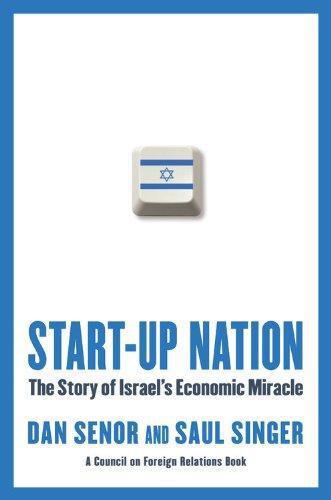
Start-Up Nation: The Story of Israel's Economic Miracle
by
Dan Senor
and
Saul Singer
Published 3 Nov 2009
Rhoula Khalaf, “Dubai’s Ruler Has Big Ideas for His Little City-State,” Financial Times, May 3, 2007. 3. Michael Matley and Laura Dillon, “Dubai Strategy: Past, Present, Future,” Harvard Business School, February 27, 2007, p. 3. 4. Quoted in Assaf Gilad, “Silicon Wadi: Who Will Internet Entrepreneurs Turn to in Crisis?” Cataclist, September 19, 1998. 5. Saul Singer, “Superpower in Silicon Wadi,” Jerusalem Post, June 19, 1998. 6. Quoted in Steve Lohr, “Like J. P. Morgan, Warren Buffett Braves a Crisis,” New York Times, October 5, 2008. 7. Quoted in Eyal Marcus, “Israeli Start-ups Impress at TechCrunch50,” Globes Online, September 14, 2008. 8.
…
“Netanyahu to Obama: Stop Iran—or I Will.” Atlantic, March 31, 2009. Gompers, Paul A., and Jeffrey M. Anapolsky. “The Advent Israel Venture Capital Program.” Harvard Business School Case 204-156, April 2004. Case Library, Harvard Business Publishing. Gompers, Paul A., and Sara Bergson. “The Emergence of ‘Silicon Wadi.’ ” Harvard Business School Note 204-156, April 2004. Gompers, Paul A., Anne Kovner, Josh Lerner, and David S. Scharfstein. “Skill vs. Luck in Entrepreneurship and Venture Capital: Evidence from Serial Entrepreneurs.” Working paper 12592. National Bureau of Economic Research, October 2006. http://imio.haag.berkley.edu/williamsonseminar/scharfstein041207.pdf.
…
The Entrepreneurial Imperative: How America’s Economic Miracle Will Reshape the World. New York: HarperCollins, 2006. Scott, Bruce R., and Srinivas Ramdas Sumder. “Austin, Texas: Building a High-Tech Economy.” Harvard Business School Case 799-038, October 1998. Case Library, Harvard Business Publishing. Singer, Saul. “Superpower in Silicon Wadi.” Jerusalem Post, June 19, 1998. Solow, Robert M. “Growth Theory and After.” Nobel Prize lecture, December 8, 1987. http://nobelprize.org/nobel_prizes/economics/lau reates/1987/solow-lecture.html. Snook, Scott A., Leslie J. Freeman, and L. Jeffrey Norwalk. “Friendly Fire.” Harvard Business School Case 404-083, January 2004.
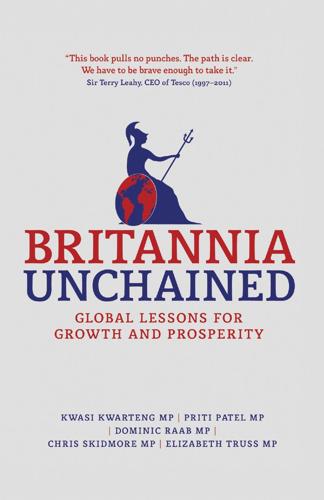
Britannia Unchained: Global Lessons for Growth and Prosperity
by
Kwasi Kwarteng
,
Priti Patel
,
Dominic Raab
,
Chris Skidmore
and
Elizabeth Truss
Published 12 Sep 2012
Israel’s 7 million workers attract as much venture capital as France and Germany combined.6 Many countries have tried to grow their own version of Silicon Valley, but Israel is one of the few to succeed. Twenty years ago, Israel was famous mostly for farming and defence technology. Now, executives at Google and Microsoft regularly point to ‘Silicon Wadi’, the area around Tel Aviv, as the second most important in the world for tech start-ups. The Economist7 and industry magazine Wired8 agree. What is it that the Israelis are getting so right? Israel – Chutzpah Nearly everyone who works in an office environment will be familiar with the need to transfer files quickly and securely.

The Best Interface Is No Interface: The Simple Path to Brilliant Technology (Voices That Matter)
by
Golden Krishna
Published 10 Feb 2015
Silicon St, 64. Silicon Surf, 65. Silicon Swamp, 66. Silicon Taiga, 67. Silicon Valley, 68. Silicon Valley of China, 69. Silicon Valley of India, 70. Silicon Valley of Indonesia, 71. Silicon Valley of South Korea, 72. Silicon Valley of Taiwan, 73. Silicon Valley North, 74. Silicon Vineyard, 75. Silicon Wadi, 76. Silicon Walk, 77. Silicon Welly, 78. Silicon Woods, 79. Silicotton Valley, 80. Solar Valley, 81. Ticino Valley Area, 82. Wyoming Silicon Prairie (also called the Silicon Range) “Innovation” centers around the world. (Sources: Wired magazine, Inc. magazine, CNBC, Wikipedia) Oh, the unoriginal places you’ll go.
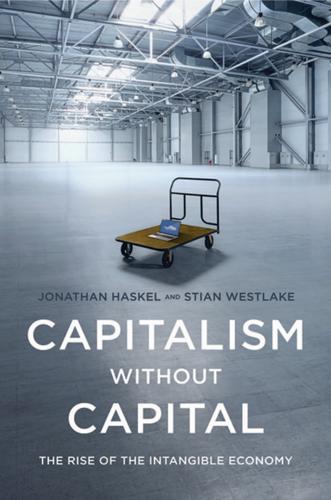
Capitalism Without Capital: The Rise of the Intangible Economy
by
Jonathan Haskel
and
Stian Westlake
Published 7 Nov 2017
It is rare to see a modern government that does not have some sort of strategy for supporting or building local clusters, especially in high-innovation sectors. (Witness the dozens of Silicon-soundalike names that have been coined around the world in homage to northern California’s tech cluster—from Silicon Roundabout in London and Silicon Wadi in Israel, to any number of more aspirational variants elsewhere.) Cluster policy is appealing in part because of the glamorous and well-publicized success of places like Silicon Valley and Israel’s tech sector—what politician wouldn’t want their country to be at the forefront of a technological revolution?
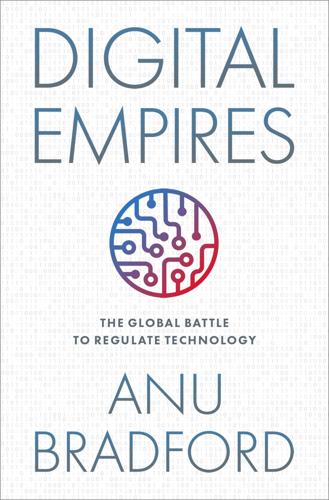
Digital Empires: The Global Battle to Regulate Technology
by
Anu Bradford
Published 25 Sep 2023
Following the recent, significant regulatory crackdown on the tech industry by the Chinese government and the restrictions imposed by the US government, several Chinese tech companies are now diversifying their business opportunities and investing heavily in overseas expansion—focusing on markets outside of both China and the US.46 The US tech companies, while at times reviled for their excessive market power and extractive data practices, are often admired for their success. There are numerous examples of countries attempting to replicate the success of US tech companies by emulating California’s startup haven, the Silicon Valley. Examples of Silicon Valley replicas include “Silicon Wadi” in Tel-Aviv, Israel; “Silicon Roundabout” in London, UK; “Chilecon Valley” in Santiago, Chile; “Silicon Allee” in Berlin, Germany; “Silicon Lagoon” in Lagos, Nigeria; and “Silicon Savannah” in Nairobi, Kenya. One of the earliest examples is the United Arab Emirates’ “Internet City” in Dubai, which was established around the same time as California’s Silicon Valley.
…
American Civil Liberties Union, 46 Republican Party, 56, 272 research and development AI, 153–54, 197 Chinese students and researchers, 196–97 Defense Advanced Research Project Agency (DARPA) (US), 59 semiconductor, 59–60 RFE/RL (Radio Free Europe and Radio Liberty), 270 Rhodium Group, 93–94 Rice, Condoleeza, 271 rights to be forgotten, 112–13, 339–40 California Privacy Rights Act, 54–55 Charter of Fundamental Rights of the European Union (EU Charter), 110–11, 112, 116 cyber civil rights, 53–54 digital, 324–59 digital society of rights and values, 25 European, 324–59 European Convention of Human Rights, 112 globalization of, 324–59 of Muslims, 156–57 to privacy, 4, 111–13 safeguarding, 110–18 rights-driven regulations criticism of, 136–45 European model, 6–10, 16–20, 21–22, 23–24, 25, 28–29, 57–63, 91–94, 105–45, 221–54, 324–59, 361, 366–69 global influence, 16–20, 324–59 vs. market-driven regulations, 221–54 Roberts, Margaret E., 81–82, 83 Rohingya, 17–18, 280, 283 Romania, 144 Roskomnadzor, 309, 311–12 Ross, Wilbur, 226 Rozenshtein, Alan, 61–62 Rubio, Marco, 196–97 Rudd, Amber, 281–82 Rules on Counteracting Unjustified Extra-territorial Application of Foreign Legislation and Other Measures (Blocking Rules) (China), 200, 202 Russel, Stuart, 66–67 Russia 5G networks, 312 antitrust regulation, 344–45 battles with tech companies, 13–14, 163 BRICS Leaders Declaration, 303 content controls, 180–81 cyberattacks, 134 data localization requirements, 330–31 demands on Meta, 338 digital authoritarianism, 135, 308–13 Digital Divide projects, 268 disinformation campaigns, 120–21 Federal Security Service, 312–13 hate speech law, 140–41 and international code of conduct for information security, 303 internet sovereignty, 309–10 invasion of Ukraine, 13–14, 62, 163, 233–34, 253, 312–13, 384, 392 “law against Apple,” 312 propaganda, 308, 312–13 regulations, 308–13 relations with China, 310–13 sanctions against, 163, 197–98 search engine market, 260–61 social media restrictions, 284 Sovereign Internet Law, 308–9 surveillance technology, 312 tech diplomacy, 302 techno-autocracy, 389–90 US–Russia Cold War, 217–18, 270 Yarovaya law, 309 Russia Today, 312–13 Russian Antimonopoly Service (FAS), 344–45 Russian apps, 312 Russian hackers, 67 safe cities, 296–97, 300–1, 314–16. see also smart cities Safe Harbor data transfer agreement, 111, 229–30 Safe Philippines project, 300 SAMR (State Administration for Market Regulation) (China), 204 Samsung, 215–16, 261 sanctions Anti-Foreign Sanctions Law (AFSL) (China), 202–3 against China, 185–86, 197–99, 218–19 against Chinese firms, 102–3, 166–67 cyber sanctions, 206–7 to deter malicious cyber activity, 134, 197–99 against Russia, 163, 197–98 against Russian oligarchs, 309–10 Santiago, Chile, 263 SAP, 108, 136–37 Sasse, Ben, 192–93 Saudi Arabia, 270–71, 308, 316, 389–90 5G networks, 193–94 China’s influence on, 299–300 Saverin, Eduardo, 374–75 SCCs (standard contractual clauses), 231–32 Schmidt, Eric, 75, 208, 274–75, 389–90 Schmit, Nicolas, 128 Schneir, Bruce, 101 Schrems, 229–30 Schrems, Max, 230–32, 235–36 Schrems II, 230–34 Schwab, Andreas, 249 Schwartz, Paul, 325 science and technology diplomats, 302 search engines, 153–54. see also specific technologies Secure Campus Act (US), 196–97 Secure Equipment Act (US), 193 Securities and Exchange Commission (SEC) (US), 14–15, 174–75, 176–78 security cybersecurity, 60, 62, 173 Cybersecurity Law (China), 79–80, 94–95 Cybersecurity Review Measures (China), 94–95 Cyberspace Administration of China (CAC), 175 Data Security Law (DSL) (China), 79–80, 94–95, 175 international code of conduct for information security, 303 national, 66–67, 164–78 National Security Law (China), 79–80 Prague Proposals, 320–21 societal, 85 self-regulation, 39–40, 47–48, 63–64 self-sufficiency, 73–75, 199–211, 217–18 Semiconductor Industry Association (US), 218 semiconductors advanced, 217–18 global market, 74–75, 134–35, 215–16 research and development, 59–60 US export controls, 190 US–China tech war, 211 Senegal, 285–86 Senkaku Islands (Diaoyu Islands), 156–57 SenseTime, 85, 189–90 Sequoia Capital, 373 Serbia, 301 sex trafficking, 51–52, 53–55 Shanghai Cooperation Organization, 303 Sharp Eyes initiative (China), 4–5, 86 Shein, 165 Shenzhen, China, 35 Sherry, Linda, 355–56 Shu Yinbiao, 305 Sichuan, China, 314 Siemens, 263, 321 Siemens/Alstom, 248 Silicon Allee (Berlin), 263 Silicon Lagoon (Lagos), 263 Silicon Roundabout (London), 263 Silicon Savannah (Nairobi), 263 Silicon Valley, 7–8, 33–35, 42, 92–93, 263, 283–84, 374 Silicon Wadi (Tel-Aviv), 263 Singapore, 266–67, 322 Singapore-New Zealand-Chile Digital Economy Partnership Agreement, 322 Siri (Apple), 59 Slack, 76–77 Small Business Administration (SBA), 59 smart cities AI cities, 208–9 on Chinese Digital Silk Road, 195, 291–92, 296–97, 298, 305, 312, 314–15, 316–17 surveillance systems, 85–86, 296, 312, 316–17 technical standards, 305, 316–17 smartphones, 70–71, 215–16 Smith, Brad, 62, 138 Smith, Christopher, 276 Snap Inc., 76–77, 382–83 Snapchat, 116–17, 280–81 Snowden, Edward, 4–5, 7–8, 61, 198–99, 226–27, 229–30, 284–85, 287–88, 318–19 social credit, 8–9, 87–88 social fairness, 124 social media, 41, 64–65, 215–16 Chinese platforms, 80, 82–83, 154–55, 166–67, 293, 312–13 disinformation campaigns, 280–81 role in Brexit, 280 role in January 6, 2021 attack on the US Capitol, 141 role in terrorist attacks, 281–82 US platforms, 280–83 social media companies, 280–83, 362–63. see also specific companies by name Social Principles of Human-Centric AI (Social Principles) (Japan), 349–50 social stability, 70 societal security, 85 Softbank, 176 software developers, 73 Soho China, 204 SolarWinds hack, 60 Sonos, 330 Sony Ericsson, 263 SoundCloud, 76–77 South Africa, 303 South America, 301. see also specific countries by name South and South-East Asia, 260, 300. see also specific countries by name South Korea, 211, 333–34, 337, 344–45 Anti-Google Law (Telecommunications Business Act 31), 347 Digital Divide projects, 268 techno-democracy, 389–90 Sovereign Internet Law (Russia), 308–9 sovereign RuNet, 308–9 sovereignty data, 297 digital, 132–33, 135, 186, 215, 245–46, 354 internet, 288–89, 309–10 technological, 132–33, 180–81, 234 Spain antitrust investigations, 345 data privacy law, 333–34 digital policy, 142 digital services tax (DST), 126–27, 239, 242 Google News withdrawal from, 122–23 privacy culture, 143–44 protections for platform workers, 128–29 restrictions on Chinese tech companies, 193–94 smart cities, 296–97 surveillance practices, 102, 143–44 speech freedom of, 41–42, 46–47, 116–18 hate speech, 281 Hate Speech Code (Code of Conduct on Countering Illegal Hate Speech Online) (EU), 116–17 hate speech rules, 9–10, 55–56, 116–17, 140–41 NetzDG law (Germany), 140–41 splinternet, 16, 179–80, 181, 388 Spotify, 238 Sputnik, 312–13 spyware, 143–44, 316 standard contractual clauses (SCCs), 231–32 standards China Standards 2035 plan, 304 Chinese, 291 Chinese influence on, 302–8, 316–17 data privacy, 324–25 digital trust, 320–21 IPv6+ (proposed), 307 New IP (proposed), 306–7 for smart cities, 316–17 technical, 291, 302–8, 316–17 Stanford University, 33–34, 59, 210–11 Stasi (East German Ministry for State Security), 111–12 State Administration for Market Regulation (SAMR) (China), 204 state aid, 243–44 state control Chinese state-driven regulatory model, 6–10, 16–20, 21, 23–25, 28–29, 57–63, 69–104, 108, 131–36, 364–66, 391–92 criticism of, 99–104 global consequences, 16–20 vs. market-driven regulations, 36–40 Russian state-driven regulatory model, 308–13 with surveillance, 85–88 with tech companies, 88–91 Stop Online Piracy Act (SOPA) (US), 48–49 #StopHateForProfit boycott, 384 strategic autonomy, 132–34, 186 Stratton Oakmont v Prodigy, 43–44 subsidies, 134–35 Sudan, 297–98 Sugon, 161–62 Sullivan, Jake, 209, 251–52, 351 Summit of Democracy, 390 Sun Jiandong, 80 Sunstein, Cass, 64–65 surveillance capitalism, 4, 66, 135–36, 368–69 surveillance imperialism, 17 surveillance technology(-ies) AI-driven, 85, 293 Chinese, 77–91, 297–98, 314–20 citizen response, 88–91 Commerce Control List (US), 188–89 and crime, 85, 296–97, 301, 314 cybersurveillance, 134 digital, 4–5, 61, 85–88, 99–100, 170 ECU-911, 301 globalization of, 314–20 government, 4–5, 17, 60–62 Safe Philippines project, 300 Snowden revelations, 4–5, 7–8, 61, 198–99, 226–27, 229–30, 284–85, 287–88, 318–19 standards for, 306 transatlantic data transfers, 226–36 Susquehanna, 93 Sweden, 142, 272–73, 319–20, 374, 389 Switzerland, 333–34 Syria, 3, 270–71, 274 T-12 group, 389 Taiwan, 78–79, 80, 211, 216–17, 319–20 Tajikistan, 303 Taliban, 274, 282 Tanzania, 282–83, 299 Tauzin, William, 44–45 taxation bit taxes, 286 Data Mining Tax (New York), 239–40 digital services taxes (DSTs), 126–28, 142–43, 224, 236–41, 352 global deal, 240–42 national regimes, 142–43 Tech-10, 389–90 tech companies. see also specific companies by name acquisitions, 50–51 AI developments, 208–9 battles among, 382 Chinese, 70–71, 93–94, 98–99, 102–3, 151–52, 164–79, 189–90, 192–96, 208–9, 215–16, 262–63 Clean Telcos, 320–21 concern with the Brussels effect, 353–59 content moderation, 338–39 countermeasures against the Brussels effect, 356–59 custodians of the internet, 141 data collection from, 61 data privacy policies, 326–32 European, 108, 136–37 global influence, 259–65 global sales, 215–16 government battles, 13–16, 25–26, 61–62, 152–64, 205, 222, 376–85 hardware companies, 73 internet companies, 70–71 large, 377–78, 381–85 largest public internet companies, 70–71 liberation of, 42–45 new governors, 259–60 political influence, 55–56 private power, 20 regulation of, 377–78. see also regulation(s) Silicon Valley replicas, 263 social media companies, 166–67 state-controlled surveillance with, 88–91 terms of service, 338 US, 14–15, 108, 149–50, 151, 152–64, 205, 222, 257–58, 259–65 TechAmerica Europe, 357 technical standards, 291, 302–8 techno-autocracy(-ies), 22, 292, 388–93 techno-democracy(-ies), 22, 320, 388–93 techno-libertarianism, 34–35, 38–39, 257–89 techno-nationalism, 75–76, 184–85, 211, 212–15, 224, 249 techno-optimism, 33, 48, 122 technological self-sufficiency, 199–211, 217–18 technological sovereignty, 132–33, 180–81, 234 technology(-ies) 5G network, 133–34 backlash against, 55 censorship, 77–91 Chinese, 21, 72–75, 77–91, 92–93 chokepoint, 206 critical assets, 192–96 “Declaration for the Future of the Internet,” 390 decoupling from consumer markets, 178–82, 388 deep tech, 206–7 facial recognition, 85, 138, 298–99 geoblocking, 338, 339 hard tech, 96–97 regulation of, 1–29, 360–93. see also regulation(s) science and technology diplomats, 302 smart city, 85, 296–97 standards for, 305 surveillance, 77–91 US export limitations on, 188–92 US–China tech war, 10–11, 96–97, 103, 151–52, 164, 179–80, 183–220, 295, 361, 366, 386, 387 technopolarity, 259–60 Tel-Aviv, Israel, 263 telecommunications 4G networks, 297–98 5G networks, 133–34, 187–88, 190, 192–94, 293, 301, 320–21 Chinese tech exports, 293 network equipment, 70–71, 194, 215–16 security guidelines, 320–21 Telecommunications Act (US), 43–44 Telecommunications Business Act 31 (Anti-Google Law) (South Korea), 347 Telegram, 285–86, 311–12 Tencent, 108, 154 antitrust blockade, 347–48 Chinese state support, 8–9, 71, 94, 391–92 DSR operations, 294–95 global influence, 70–71, 73, 208–9, 293 global revenues, 262–63 social responsibility programs, 98–99 US funding, 93–94 Teradyne, 218 terrorist attacks, 61–62, 281–82 terrorist propaganda, 3, 117 Tesla, 142–43, 215–16 Texas, 56, 336 TFDPA (Act on Improvement of Transparency and Fairness in Trading on Specified Digital Platforms) (Japan), 346–47 3rd Generation Partnership Project (3GPP), 305–6 Thomson, Derek, 101 Thucydides Trap, 216–17 Tiananmen Square protests (1989), 76–77, 78–79 Tibet, 78–79, 153–54 Tigrayans, 283 TikTok battles with governments, 14–15, 151–52, 169–70, 193–94 Code of Conduct on Countering Illegal Hate Speech Online (Hate Speech Code), 116–17 content moderation, 341 Disinformation Code, 120 global influence, 70–71, 100, 215–16, 260, 293–94 Indian ban on, 169–70, 193–94 relations with Meta, 170 Russian fines, 309–10 UK Parliament account, 169–70 US attempts to ban, 102–3, 151–52, 165–72, 200–1 US presence, 165, 178 Toomey, Patrick, 236 trade Chinese exports, 290–323 digital trade agreements, 322–23 Export Administration Regulations (EAR) (US), 189–90 Export Control Reform Act (ECRA) (US), 188–89 transatlantic war, 236–42 US export controls, 15, 188–92, 218–19, 366 US–China trade war, 97, 185–86, 188–92, 200 Trade Act (US), 238–39 Trade and Technology Council (TTC) (US-EU), 252–54 Trans-Pacific Partnership, 213 transatlantic data transfers, 226–36 battles over, 222–23, 228–31 future directions, 231–36 standard contractual clauses (SCCs), 231–32 transatlantic regulatory battles, 26–27, 221–54 Transatlantic Trade and Investment Partnership, 253–54, 359 Transatlantic Trade and Technology Council, 359 transatlantic trade war, 236–42 Treaty of the European Union, 110, 118 Trip Advisor, 358 Truex, Rody, 197 Trump, Donald America First policy, 213 complaints against EU antitrust policy, 245 disinformation propagation, 277–78 efforts to ban Chinese tech companies, 102–3, 166–68 efforts to discipline social media companies, 49–50 efforts to restrict entry of individuals from Muslim-majority countries, 156–57 internet freedom agenda, 276–77 and Malofeev, 309–10 presidential campaign (2016), 368–69 suspension from social media, 384 transatlantic trade war, 238–39 US–China tech war, 184–85, 192–93, 208, 213, 218 Tsargrad TV (YouTube channel), 309–10 TTC (Trade and Technology Council) (US-EU), 252–54 Tumblr, 76–77 Tunisia, 272–74 Turkey, 338, 344–45, 374 5G networks, 193–94 digital services taxes (DSTs), 352 21Vianet Group, 154 Twitch, 76–77 Twitter Apple’s new anti-tracking measures and, 382–83 Arab Spring posts, 272 Chinese blockade, 76–77, 78–79, 80 compliance with EU laws and regulations, 116–17, 163 content moderation, 3, 7–8, 65–66, 337–38, 341, 377–78, 384–85 disinformation campaigns, 280–81 Disinformation Code, 120 employee walkout, 384–85 European headquarters, 142–43 fact checks, 49–50, 82–83, 277 global influence, 133–34, 257–58 harmful content, 141, 282–83 Hate Speech Code, 116–17 hateful conduct, 338 propaganda on, 282–83 purchase by Musk, 105 role in Brexit, 17–18, 280 role in cyberterrorism, 284 role in spread of false information, 65 Russian blockade, 163, 309–10, 311–13 support for internet freedom, 274–75, 284 withdrawal from China, 8–9 Uber, 165 Uber drivers, 128–29 UEL (Unreliable Entities List) (China), 200–1, 218–19 Uganda, 282–83, 317–18 Ukraine battles with tech companies, 13–14 cyber defense, 62 Russian invasion of, 13–14, 62, 163, 233–34, 253, 312–13, 384, 392 unicorns, tech, 136–37 unipolar world, 386 United Arab Emirates, 193–94, 299–300 United Kingdom (UK), 337 5G networks, 301 antitrust regulation, 345–46 Brexit campaign, 17–18, 120–21, 280 Competition and Markets Authority, 345–46 content moderation, 342 data protection law, 333–34 digital policy, 142 digital services tax (DST), 126–27, 239, 242 e-commerce market, 262 G7 relations, 321–22 nonregulation principle, 266–67 Online Safety Bill (OSB), 342 Parliament, 169–70 protections for platform workers, 128–29 relations with China, 197–98 Remain campaign, 17–18 restrictions on Chinese tech companies, 193–94 tech diplomacy, 302 techno-democracy, 389–90 United Nations (UN), 111, 269, 288–89, 302–3, 307–8 United Nations Human Rights Council (UNHRC), 273 United States (US) AI regulation, 351 AI research, 210–11 Allow States and Victims to Fight Online Sex Trafficking Act (FOSTA), 51–52, 53–54, 55 America First policy, 213 American Innovation and Choice Online Act, 53–54 anti-censorship principles, 267–68, 270–76 antitrust regulation, 5, 50–51, 244–45, 345, 347–48, 363 Bankruptcy Code, 374 battles with China and EU, 11–13, 15–16, 21, 26–27, 57 battles with tech companies, 13–16, 164–78 Biden administration, 53, 168, 196, 197–98, 241, 278–79, 321 Bureau of Cyberspace and Digital Policy, 278 Bush administration, 48–49, 257, 271, 276 Chamber of Commerce, 61–62 Children’s Online Privacy Protection Act (COPPA), 44–45 China Initiative, 196–97 Chinese influence in, 301 Chinese measures against, 199–207 Chinese tech companies in, 165 CHIPS and Science Act, 59–60, 211 Clarifying Lawful Overseas Use of Data Act (CLOUD Act), 222–23 Clean Network program, 320–21 Clinton administration, 36–37, 47–48, 257, 265–70, 276 Commerce Control List, 188–89 Committee on Foreign Investment in the United States (CFIUS), 195–96 Communications Decency Act (CDA), 5, 42–47, 53–54, 56–57, 64, 132, 137–38, 265–66, 286–87, 364 criticism of, 279–89 cyber sanctions, 197–99 cybersecurity, 61–62, 67, 276–77 Data Privacy Framework, 235 data privacy law, 235, 336 “Declaration for the Future of the Internet,” 390 Defense Advanced Research Projects Agency (DARPA), 59, 209 Department of Commerce, 60, 168–69, 188–89 Department of Defense, 59, 209 Department of Homeland Security, 60 Department of Justice (DOJ), 46–47, 50–51, 53–54, 196, 348, 363 Department of State, 271–75, 276–77, 278, 284 Department of the Treasury, 245 Development Initiative, 268 Digital Millennium Copyright Act, 44–45 digital policy, 57, 213, 250–54 digital services taxes (DSTs), 237, 239–40 digital trade agreements, 322 e-commerce market, 262 Entity List, 189–90, 200–1, 218–19 Executive branch, 47–50 Executive Order on Enhancing Safeguards for United States Signals Intelligence Activities, 235–36 Export Administration Regulations (EAR), 189–90 Export Control Reform Act (ECRA), 188–89 export controls, 15, 188–92, 218–19, 366 Federal Bureau of Investigation (FBI), 61–62, 196, 236 Federal Communications Commission (FCC), 44, 193 Federal Trade Commission (FTC), 50–51, 53–54, 139–40, 348, 363 Foreign Investment Risk Review Modernization Act (FIRRMA), 195 foreign policy, 40–41, 253–54, 272, 276–77, 278, 284 foreign students, 375 “A Framework for Global Electronic Commerce” (Framework), 48, 266–67, 286 G7 relations, 321–22 global influence, 16–20, 27, 257–89 Holding Foreign Companies Accountable Act, 96, 174 immigrants, 197, 374–75 imperialism, 17, 232 industrial policy, 59–60 Innovation and Competition Act, 190–91 International Strategy for Cyberspace, 48–49 Internet Freedom Grants, 273–74 internet freedom initiatives, 27, 257, 265–79, 284–87 Internet Protection Act, 44–45 Internet Regulatory Freedom Act, 44–45 Jordan Free Trade Agreement, 267–68 market-driven ethos, 42–52 measures against China, 187–99 Meeting the China Challenge Act, 190–91 National Science Foundation, 59 national security, 49–50, 66–67, 164–78, 233–34 National Security Agency (NSA), 4–5, 47–48, 61–62, 101, 198–99, 229–30, 318–19 National Security Commission on Artificial Intelligence, 99–100, 208, 209 National Security Council (NSC), 245–46 “National Strategy to Secure Cyberspace,” 48–49 nonregulation principle, 265–70 Obama administration, 48–49, 51, 54–55, 61–62, 257, 272, 276 Online Freedom and Viewpoint Diversity Act, 277 Open Technology Fund, 276–77 political process, 55–56 presidential election (2020), 277–78 privacy law, 5, 38, 333 Privacy Shield, 19, 230–33 Public Company Accounting and Oversight Board (PCAOB), 177–78 public opinion, 362–64 regulations, 6–10, 21–22, 23–24, 26–27, 28–29, 33–68, 91–94, 106–7, 131–36, 221–54, 361–64, 366–69 restrictions on Chinese tech companies, 165–78, 195, 388 Safe Harbor data transfer agreement with EU, 111, 229–30 sanctions against China, 102–3, 185–86, 197–99, 218–19 sanctions against Russian oligarchs, 309–10 scientific community, 196–97 Secure Campus Act, 196–97 Secure Equipment Act, 193 Securities and Exchange Commission (SEC), 14–15, 174–75, 176–78 self-sufficiency, 217–18 semiconductor funding, 211 Small Business Administration (SBA), 59 Stop Online Piracy Act (SOPA), 48–49 subsidies, 217–18 surveillance operations, 4–5, 7–8, 61–62, 101, 226–27, 229–30, 284–85, 287–88, 318–19 tech diplomacy, 302 techno-democracy, 389–90 techno-libertarianism, 257–89 technological leadership, 197 Telecommunications Act, 43–44 Trade Act, 238–39 Trade and Technology Council (TTC), 252–54 transatlantic regulatory battles, 26–27, 221–54 transatlantic trade relations, 236–40 Trump administration, 49–50, 168–69, 171, 185, 196–97, 200–1, 213, 228, 241, 253–54, 276–77, 320–21 universities, 375 US–China relations, 74–75, 162–63, 171, 323 US–China tech war, 10–11, 96–97, 103, 151–52, 164, 179–80, 183–220, 295, 361, 366, 386, 387 US–China trade war, 97, 185–86, 200 US–EU regulatory battles, 221–54, 359, 361–69, 387 US–EU relations, 127 US–Japan Digital Trade Agreement, 322 US–Russia Cold War, 217–18, 270 United States Capitol: January 6, 2021 attack on, 7–8, 66, 100, 141, 251, 286, 363–64, 367–68 United States Constitution, 41–42, 46–47, 50, 337 United States District Court for the District of Columbia (DDC), 168–69 United States House of Representatives, 102, 277 United States Overseas Private Investment Corporation, 268 United States Senate, 99–100 United States Supreme Court, 50 Citizens United, 355 FBI v Fazaga, 236 Packingham v.
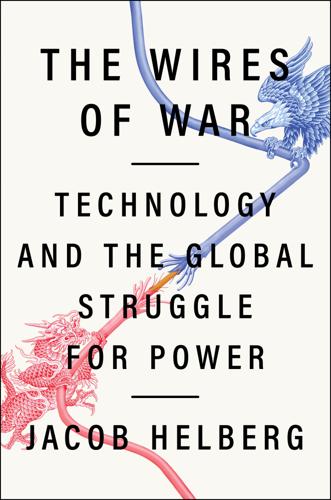
The Wires of War: Technology and the Global Struggle for Power
by
Jacob Helberg
Published 11 Oct 2021
Tamir Pardo, who served as the director of Israel’s storied intelligence service, Mossad, offers a clearer sense of what authoritarian dominance of network infrastructure could potentially mean. “Governments can have a strategic advantage from their control over the Internet infrastructure,” Pardo explained, in the summer of 2018. His sleek but sparse Tel Aviv office looks out from floor-to-ceiling windows to the heart of Israel’s “Silicon Wadi.” “When data is on a network, you can access the data, you can change the data, you can delete the data. And, therefore, you can weaponize the data.”49 One of Silicon Valley’s premier cybersecurity architects put it to me this way: “If you control the core layer of the Internet, you control everything.”50 In a free society, we take for granted that any interference with our electronic communications is subject to certain checks and balances.